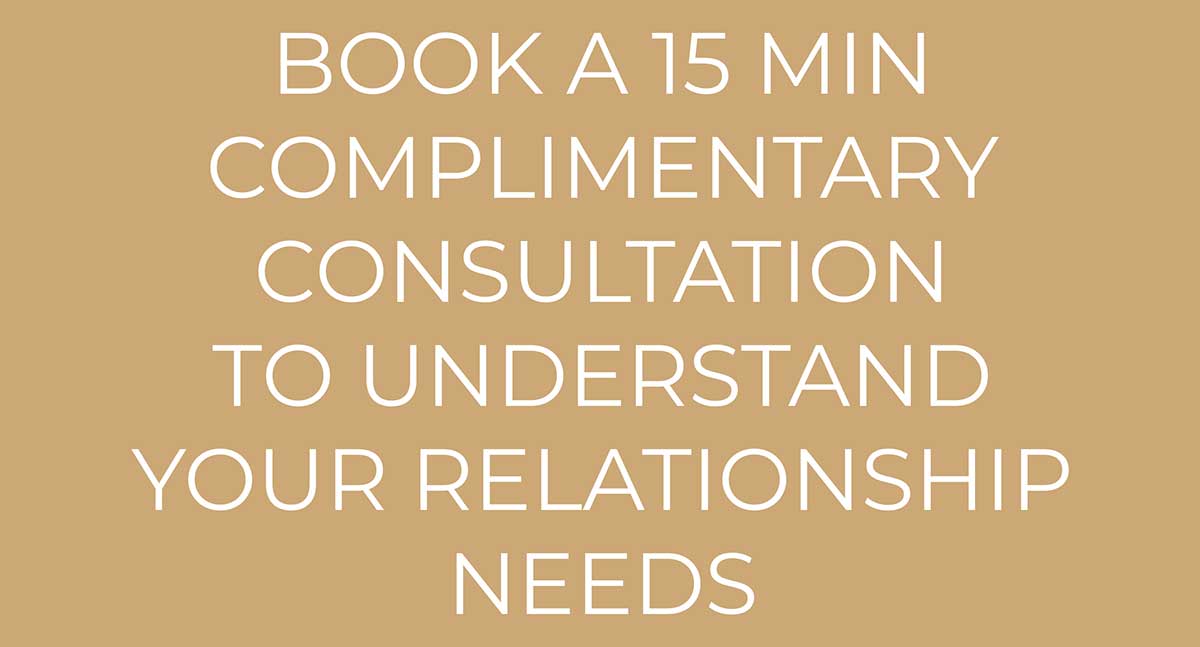
Attachment theory explains how we behave and react in relationships. Our attachment style is set up in our early interactions with our parents or primary caregivers as a child. An attachment style has a huge impact on how we interact with others as adults. Your attachment style developed in your early childhood interactions dramatically affects how you act, interact and behave in a loving relationship.
Attachment theory has more evidence and validity behind it, and is a more accurate way of understanding what drives a person in life and relationships than psychiatric or DSM terms like Narcissism, Obsessive-compulsive disorder (OCD), Bipolar disorder and Anxiety disorders, etc.
An anxious attachment style is one of the insecure attachment styles, but don’t make yourself wrong, that won’t help you or anyone else. An anxious attachment style can be overcome with professional support and with skill. An anxious attachment style is also sometimes called a preoccupied attachment disorder.
Statistics show that an estimated 1/5th of adults have an anxious attachment style.
This article answers some of the often-repeated questions regarding an anxious attachment style.
What is the Anxious Attachment Style?
An anxious attachment style is an insecure attachment style characterized by anxiety, a strong fear of abandonment or from feeling emotionally unsafe and unappreciated in relationships. This kind of attachment style starts early in childhood. Inconsistent, unpredictable parenting during childhood is cited as the reason for the anxious attachment style in adults.
Anxious attachment-based individuals often show signs of anxiety, but also low self-esteem. They have a strong emotional fear of rejection, and often have clingy behavior. These emotions obviously get played out into a loving relationship where they may experience anxiety or nervousness.
What Causes the Setup of an Anxious Attachment Style in Adults?
Inconsistent, unpredictable and emotionally unsafe parenting patterns in early childhood are the major cause of an anxious attachment style with an adult individual. It happens when parents listen to the needs of the child at certain times, and not at other times or their parenting style is not emotionally safe or respectful. The child develops confusion and nerves about the parent’s interactions and behavior which leads to an insecure attachment style. Though they may have been loved and cared for on a surface level, the child’s emotional needs have not been met consistently, leading to an anxious attachment as a child, and in later life as an adult.
If the parents or primary caregivers have anxiety, this is another reason for an anxious attachment style being passed onto a child. When the parents with anxiety seek emotional or physical closeness to satiate their need to dampen their own anxiety, rather than meeting the child’s requirement of love, a clingy nature is learnt by the child because this has been the parents anxious nature. Other reasons for an anxious attachment style developing are early separation from parents, trauma, neglect, a caregiver going through depression, an inexperienced or young parent, long hospitalization, and more. Also, physical or psychological abuse in early childhood may lead to the development of an anxious attachment style.
What are the Signs of an Anxious Attachment Style Individual?
Individuals with an anxious attachment style are likely to be nervous, uncomfortable and controlling due to their anxiety, and they may too have low self-esteem. They are often insecure and anxious in most relationships and of course in their loving relationship. They will look for constant reassurance that they are loved, good enough, and will struggle to feel worthy of a loving relationship, as their inner self will struggle to feel enough, or emotionally safe, due to their anxiety.
Some of the signs of an anxious attachment-based individual in a loving relationship are:
- A strong fear of abandonment
- Difficulty trusting their partner
- Seeking constant reassurance
- Stay clingy and preoccupied in their loving relationship with their partner
- Tendency to overly fixate on their loving partner and not their own life
- May get easily obsessed with projects
- May disregard the feelings of others or their loving partner
- Highly emotional or over sensitive
- A low or negative view of self in relationships and their loving relationship
How does an Anxious Attachment Style Benefit an Individual?
Attachment styles also have benefits. Individuals with an anxious attachment style are often driven individuals, but they really struggle to be able to relax. They respond quickly to danger or perceived threats and can identify problems rapidly with acute, fast thinking capabilities fueling their thoughts, but they struggle to slow down.
They are often very protective of friends, family and their loving partner, and often willing to give a lot more to a loving partner emotionally and financially. They are often very loyal, and go out to protect their loving partner at all costs. They can be very, very loving as they crave connection to dampen their own anxiety.
Can a Person with an Anxious Attachment Style overcome this Attachment Style?
As attachment styles are developed as a result of relationships with our parents or primary caregivers in early life, it is not usually an overnight success with counseling, therapy or coaching sessions to change. But the good news is with a highly skilled professional the challenges of having an anxious attachment can be overcome, and a person with an anxious attachment, can move towards developing a secure attachment with a loving partner.
Here are a few points that will help someone gradually overcome an anxious attachment style:
- Develop self-awareness about your attachment style
- Watch closely how you behave in relationships, and in your loving relationship, and don’t let your impulses run your life
- Choose an exercise regime that helps you to develop greater self-control over your emotions, and control over your personal behavior, like martial arts
- Try to surround yourself with respectful individuals with secure attachment styles
- Use EMDR to lower emotions in your body from past events
- Work with a highly skilled professional counselor, therapist or coach to work through this attachment style
What is it like to Date someone with an Anxious Attachment Style?
Dating someone with an anxious attachment style may feel like an emotional roller-coaster ride. They might crave a deep connection and intimacy but have difficulty in trusting the person they are dating. Given the childhood experiences they have come through, they find it difficult to trust their prospective partner. Dating someone they really like may create overwhelming anxiety in them, and a need for the relationship to develop quickly, to provide them with emotional safety.
Consequently, anxious attachment individuals may become obsessive about their prospective partner. They may behave in ways that you may feel overwhelmed by, as they may likely show emotional neediness and clinginess in the dating phase of the loving relationship. A slight disappointment or a sign of rejection can be overwhelming and painful to them. The anxiety or nerves may play out as seeming intense, but if you can look through their intensity and over-thinking, they can be very loyal, genuine and loving.
How to know whether your Partner is an Anxious Attachment-Based Individual?
People with anxious attachment styles will have trust issues with their romantic partner. As a result of low self-esteem, they might seek constant reassurance and validation from their partner. Because of their lack of a sense of security and emotional safety, they lack self-confidence, and so tend to constantly express their needs and desires, due to overthinking being a trait of an anxious attachment.
If your partner has an anxious attachment style, they may seem clingy and overly dependent on the relationship. They can be oversensitive about your actions, words, and behavior. They may too feel jealous when you spend time with other people, and not include them. It is common for an anxious attachment to want to spend all of their free time with you.
What to do when you have an Anxious Attachment Style-Based Partner?
It is important to be patient and consistent with your partner if they have an anxious attachment style. You need to patiently listen to the needs and concerns of this partner. You should let your partner know how you feel for them, love them, and how committed you are to them. Try to keep your words and your actions honest, truthful and consistent so that it will help your partner to improve their trust in you, and in your loving relationship. Be proactive with planning, and make sure you are consistent in your attention and care for them.
Finally, you should show compassion, empathy, and acceptance for the person to stabilize the over-thinking patterns and emotions of an anxious attachment style. Make sure they feel emotionally safe and cared about, and over time this loving and caring environment can heal this attachment style.
Summing Up
Attachment theory states that our attachments as adults, is a reflection of our relationship with our parents and primary caregivers. Knowing your attachment styles and applying dedicated effort towards changing them with professional support from a highly skilled counselor, therapist or credentialed coach can help you to build happy and healthier relationships and a happier, more secure, loving relationship.
An anxious attachment style is one of the insecure attachment styles in which the individual constantly suffers from low to higher levels of anxiety and usually a fear of abandonment. They have had a poor experience of secure relationships as a child. So, they lack confidence in being in a secure relationship as an adult. They sometimes become jealous and obsessive in a loving relationship, but the flip side is they can be extremely loving and loyal partners when appreciated and understood.
Though attachment styles may seem to be permanent, there are a lot of ways to overcome the challenges of attachment-based patterns. With the help of a highly skilled professional therapist, counselor or credentialed coach and consistent effort, it is quite possible to change your attachment-based patterns. When you know your attachment style and your partners, it becomes easier to succeed with love.



